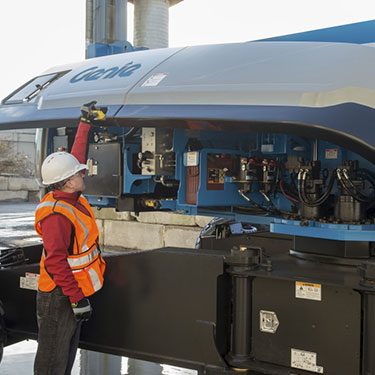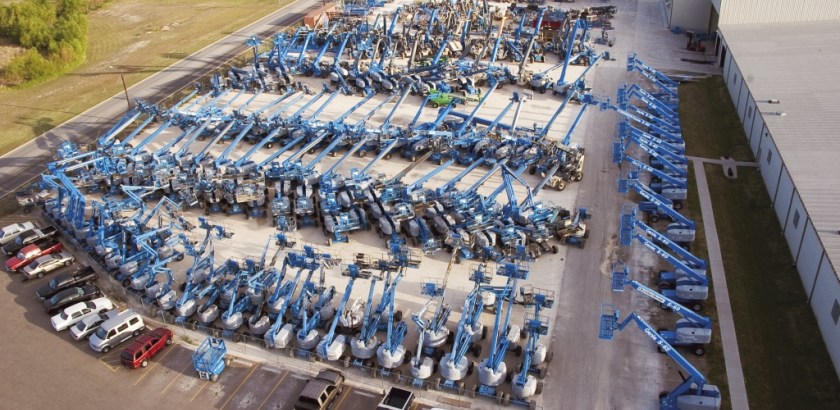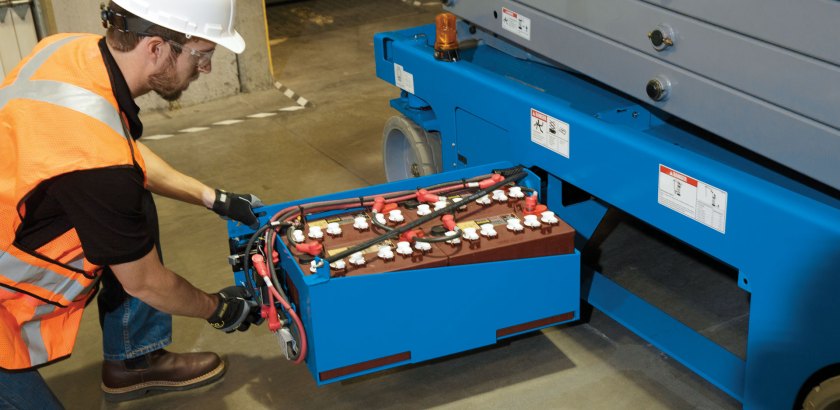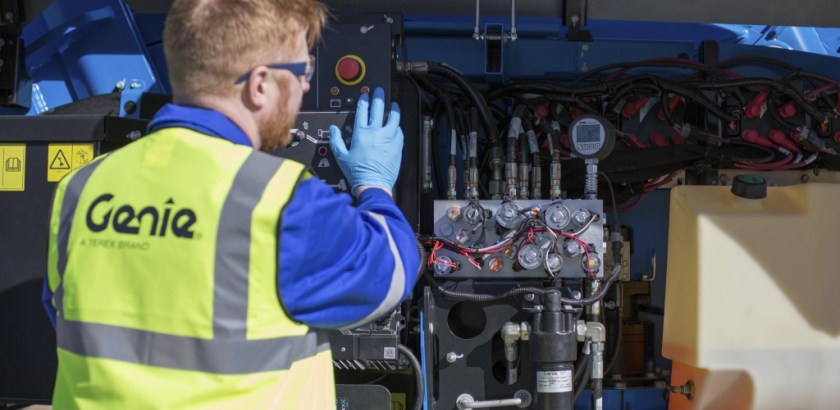Maintenance Tips for Your Tier 4 Final Aerial Work Platforms
by Galen Wickstrom - National Accounts Manager On Apr 27, 2017, 03:00 AM
Subscribe To Aerial Pros
Filter by tags
After decades of preparation, aerials with Tier 4 Final engines are beginning to find their way into your rental fleets. As you probably know, the Environmental Protection Agency (EPA) outlined a tiered series of emissions regulations for off-road engines in equipment in the mid-1990’s. Tier 4 Final (T4F) is the culmination of the EPA’s mandate, and all new Genie® diesel-powered aerial work platforms (AWPs) and telehandlers are in compliance.
T4F engines significantly reduce carbon emissions, increase fuel efficiency and allow for longer service intervals. And while T4F models have several benefits when compared to older models, there are several new maintenance-related tips that you should observe, as well as encourage your customers to do, to get the best performance and longest life out of your equipment’s engines.
 Electronic diesel engines
Electronic diesel engines
To start, it’s important to understand how T4F engines differ from those found in older models.
Engine manufacturers have switched from mechanical engines to electronically controlled engines, which means that the fuel injection and timing that was once controlled by gears, a camshaft and rockers, are now run by an engine control module (ECM). The ECM also regulates the engine’s aftertreatment system to control soot and NOx gas, nitrogen and oxygen compounds released into the environment.
Gone are the days of simple muffled exhaust, today’s diesel engines use exhaust gas recirculation (EGR) circuits and/or selective catalytic reduction (SCR) systems to reduce emissions by 50-96%. The new technology requires operators and mechanics to think about their machines a little differently than they did before.
Run the engine hot
Unlike the older engines, T4F engines are designed to run hot all the time. The heat ensures that the engine produces the right amount of power, makes sure the piston rings seat properly and helps the aftertreatment system rid pollutants.
Because these engines do run hot, they can burn some oil, so you need to make sure to check oil levels more often and add oil when needed.
Ultra-low-sulfur diesel
The quality of the fuel and oil used in T4F engines is critical. These new engines are designed to run on ultra-low-sulfur diesel and low-ash oil, which are widely available through fuel and lubricant suppliers. Older mixes of off-road diesel don’t burn clean enough and cause issues with these engines injection systems and fuel management systems.
The biggest enemy to T4F engines is water. These new high-pressure fuel systems deliver fuel at almost a molecular level. The fuel pump and turbocharger may depend on the fuel for lubrication, and when water is introduced into the system, the results can be costly. So, it's important to keep your fuel clean throughout the fueling process. Whenever possible, avoid the use of gas cans (jerry cans) because they can easily be compromised by water and dirt. And, keep your fuel supply tanks clean.
If you ever do have an engine malfunction that you suspect is related to fuel, take fuel samples immediately. A fuel sample may be able to lead you to the source of your issue, and the longer you wait, the more likely the fuel sample is to be compromised.
Fuel water separator
Any Genie product with a 49-hp diesel engine and above will be equipped with a fuel water separator. It is important for operators to be pay attention to the warning indicator light that illuminates when the separator is 70% full and have them drain the separator on a daily basis. If the separator is not emptied regularly, water can begin to by-pass the separator and penetrate the fuel system.
 Exhaust system
Exhaust system
The exhaust system on T4F engines is more robust and heavier than mufflers and catalytic converters on older products, and clamps and mounting brackets should be visibly inspected on a regular basis. Vibration can loosen up clamps over time, and if that goes unnoticed, it could lead to an expensive repair. Tell operators that if they hear something rattling to take a minute and find out what it is. An ounce of prevention is worth a pound cure.
Aftertreatment
Depending on the size and make of the T4F engine, your aerials may be equipped with a diesel particular filter (DPF), which will occasionally have to perform a regeneration process to burn off particle matter trapped in the DPF.
For some machines, enough heat is generated to clear the DPF through passive regeneration and does not impact machine operation. Low-duty cycle machines require active regeneration, requiring the operator to park a machine while it goes through a full manual regeneration.
Whether your aerials perform passive or active regeneration, it’s important to complete the process. Failure to do so will result in machine derating or shutting down to protect the system. If that happens, a qualified service professional will have to inspect the machine and clear the error code.
Diesel emissions fluid
If your aerial is equipped with a diesel emissions fluid (DEF) tank, make sure operators are checking the levels on a daily basis. DEF is a colorless, nonhazardous chemical that has been incorporated in most 75-hp engines and higher to help meet Tier 4 emission standards. And, failure to refill DEF will lead to the machine derating or shutting down… it’s like running a machine out of fuel.
Warning indicators
Pay attention to any dashboard or operator panel warning lights and take immediate action. T4F engines are finely tuned, and these indicators will only illuminate in the event of an issue. Ignoring them can lead to costly repairs and downtime.
 Service intervals
Service intervals
Familiarize yourself with recommended service intervals outlined in your aerial’s owners’ manual. Most T4F models have extended intervals when compared to older machines. However, it’s important to perform routine maintenance as outlined, using either OEM filters or a close cross match. Do not push filter life; these engines do not tolerate stretching service intervals. This may present a challenge on long-term rentals and may require you to perform maintenance in the field.
Also, when questions come up, call your Genie service technician.
Certified training
The EPA put the burden of complying on the manufacturer, which means we, Genie, are responsible for ensuring our aerial equipment continues to meet emission standards. This is why it’s imperative to only have certified mechanics working on these motors. Engine manufacturers do offer courses for rental service technicians to become certified, something you may want to consider as your fleet of T4F units continue to expand. With proper training, engine manufacturers will give you more access to equipment and permission to reading and resetting default codes, saving time and money.
The future of diesel engines is here, and following these tips will help you get the longest life from your equipment investment.
Related Posts

New Genie Boom Maintenance Manuals
When it comes to maintaining your equipment, Genie just made completing routine tasks a whole lot easier.
Continue Reading

Rental Ready – The Importance of Performing Preventative Maintenance and Inspection Tasks
Aerial equipment, including booms, scissor lifts and telehandlers, are some of the most frequently rented and used machines on jobsites.
Continue Reading

Aerial Battery Maintenance Tips
A well maintained battery can yield up to three times longer equipment life.
Continue Reading


